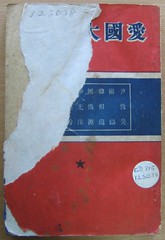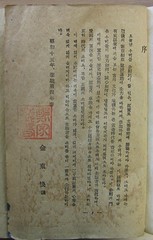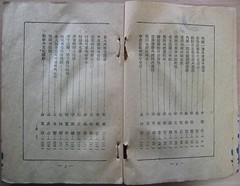Part one
In terms of agriculture, forced collectivisation was carried out [during this period]. Immediately after the end of the Korean War, in August 1953, a policy of creating agricultural cooperatives was decided upon. The collectivisation of agriculture would make it far easier to secure both the raw materials and labour that was needed for industrial expansion.
Although in the beginning private ownership rights were formally recognised and when farmers withdrew or were dismissed from the cooperatives, they could receive back their land that had been absorbed into the co-op, when the problem of ownership rights [was discussed] at the 1959 National Conference of Agricultural Cooperatives, the principle of private land ownership was abolished.
The process of collectivisation gave rise to resistance from the peasants. In the early period of collectivisation the rate of subscription to the co-ops was very low. The peasants slaughtered their main means of production: their draught animals. They thought, “well, if it’s not going to be mine anyway it’s better to eat it.” In Hwanghae province the farmers left the cooperative en masse and their actions took the form of an uprising.
The result of this was that even up until the mid 1950s grain production did not recover to the level of the wartime year of 1953.
Although North Korea has long called the South a US colony in its propaganda, after the war Soviet aid made up the largest part of the North Korean economy. Aid money came close to making up 30 percent of North Korean state finances, almost the same as in South Korea. The US provided the basis [and direction] for the South’s economy through aid, and the Soviets of course did the same thing north of the DMZ. “Let’s turn to the Soviet Union and learn from her” became one of the slogans of the time.
But in 1956 the Soviet aid money began to be reduced. To make matters worse, the fragile North Korean economy encountered a severe crisis.
The so-called ‘factional affair’ at the all-members meeting of August 1956, occurred against this sort of background. Differences of opinion were expressed over the speed and direction of accumulation and conflict arose over the way in which workers and peasants should be controlled.
For example, vice premier Ch’oe Ch’ang-ik criticised Kim Il-sŏng, saying, “The heavy industry first policy is causing hardship to the people.” Chairman of the Workers’ Confederation (직업총동맹), Sŏ Hwi argued that “the right of workers to strike” must be guaranteed and called for concessions to be given to the workers. This reflected the fact that despite the Korean War and the strengthened control over them, North Korean workers continued forms of resistance such as walking out of their workplaces and carrying out ‘go slow’ strikes.
However, the opposition faction failed. Kim Il-sŏng’s position within the party was solid. Already, during the Korean War, he had purged Pak Hŏn-yŏng and the rest of the South Korean Workers’ Party (남로당) faction and replaced them with his own supporters.
Pak Yŏng-bin, who was a member of the Soviet faction, recalls the occasion: “When Yun Kong-hŭm made a speech criticising the problem of [Kim Il-sŏng’s] cult of personality, the public gallery erupted into shouts of “get off!” and “bastard!”
Among the opposition faction Yun Kong-hŭm, Sŏ Hwi and others, sensed the personal danger they were in and sought exile in China. Kim Il-sŏng stripped the opposition of their party membership and forced them out of their positions. China and the Soviet Union put pressure on him to reverse this decision and if they had needed to they might have tried to remove him.
However, they had no alternative to Kim Il-sŏng and on top of this the uprisings in Poland and Hungary were once again increasing the pressure on them to maintain their systems. The Soviets did not want the North Korean leadership, which was on the Northeast Asian frontline, directly confronting the Americans, to become unstable.
As soon as Kim Il-sŏng had overcome the political crisis of August and September 1956, he began a wholesale retaliation. The opposition faction was almost completely purged and the system of one-man dictatorship was created.
This political and economic crisis was one of the pressures that made Kim Il-sŏng emphasise [North Korea’s] independence from the Soviet Union and ‘Juche’. The conflict between China and Soviet Union, which began in earnest in 1957, also granted Kim Il-sŏng considerable autonomy.
The response to the reduction of Soviet aid could not fail to express itself in the emphasis on ‘salvation through our own efforts’ (자력갱생) and the ‘will’. But with the limited supply of natural resources and the unstable economic situation, systems of control like the one-man management system and material initiatives like the ‘contract system’ prevented even the settling down of the economy.
The mass mobilisation movements that began in 1958, like the ‘Chollima Movement’, and the system of ‘on-the-spot guidance’ by the leader, reflected these contradictions that were besetting North Korea. And the rapid economic development of this period also harboured the seeds of today’s economic ruin.








